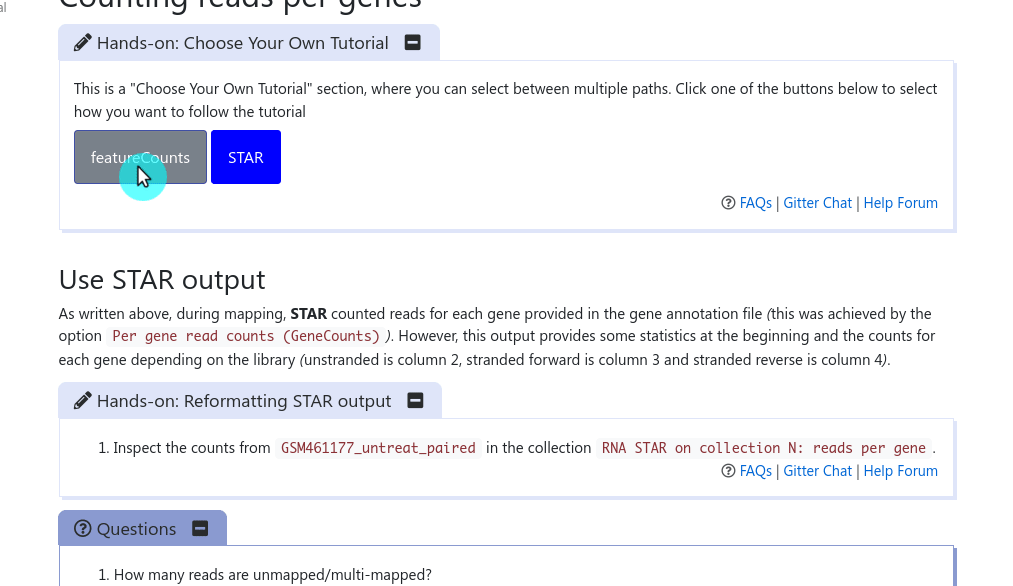Gallantries: Bridging Training Communities in Life Science, Environment and Health
Members
These individuals have noted that they are affiliated in some way with this organisation. This list is non-exhaustive, and randomly ordered.
Former Members
These individuals have noted that they previously were affiliated in some way with this organisation. This list is non-exhaustive.
Contributions
The following list includes only slides and tutorials where the individual or organisation has been added to the contributor list. This may not include the sum total of their contributions to the training materials (e.g. GTN css or design, tutorial datasets, workflow development, etc.) unless described by a news post.
Tutorials
- Sequence analysis / Quality Control 💵
- Transcriptomics / RNA Seq Counts to Viz in R 💵
- Transcriptomics / RNA-seq Alignment with STAR 💵
- Microbiome / Taxonomic Profiling and Visualization of Metagenomic Data 💵
- Microbiome / Identification of the micro-organisms in a beer using Nanopore sequencing 💵
- Microbiome / Pathogen detection from (direct Nanopore) sequencing data using Galaxy - Foodborne Edition 💵
- Microbiome / Assembly of metagenomic sequencing data 💵
- Genome Annotation / Functional annotation of protein sequences 💵
- Genome Annotation / Genome annotation with Funannotate 💵
- Genome Annotation / Refining Genome Annotations with Apollo (eukaryotes) 💵
- Genome Annotation / Creating an Official Gene Set 💵
- Genome Annotation / Refining Genome Annotations with Apollo (prokaryotes) 💵
- Genome Annotation / Masking repeats with RepeatMasker 💵
- Foundations of Data Science / dplyr & tidyverse for data processing 💵
- Foundations of Data Science / CLI basics 💵
- Foundations of Data Science / Version Control with Git 💵
- Foundations of Data Science / Plotting in Python 💵
- Foundations of Data Science / Data Manipulation Olympics - JQ 💵
- Foundations of Data Science / Advanced R in Galaxy 💵
- Foundations of Data Science / SQL Educational Game - Murder Mystery 💵
- Foundations of Data Science / Data visualisation Olympics - Visualization in R 💵
- Foundations of Data Science / Advanced Python 💵
- Foundations of Data Science / R basics in Galaxy 💵
- Foundations of Data Science / Data Manipulation Olympics - SQL 💵
- Foundations of Data Science / Variant Calling Workflow 💵
- Foundations of Data Science / Advanced CLI in Galaxy 💵
- Foundations of Data Science / CLI Educational Game - Bashcrawl 💵
- Foundations of Data Science / Introduction to Python 💵
- Teaching and Hosting Galaxy training / Teaching online 💵
- Teaching and Hosting Galaxy training / Training techniques to enhance learner participation and engagement 💵
- Teaching and Hosting Galaxy training / Assessment and feedback in training and teachings 💵
- Teaching and Hosting Galaxy training / Hybrid training 💵
- Teaching and Hosting Galaxy training / Motivation and Demotivation 💵
- Teaching and Hosting Galaxy training / Asynchronous training 💵
- Teaching and Hosting Galaxy training / Train-the-Trainer: putting it all together 💵
- Teaching and Hosting Galaxy training / Course Builder 💵
- Using Galaxy and Managing your Data / Workflow Reports 💵
- Using Galaxy and Managing your Data / RStudio in Galaxy 💵
- Assembly / Genome assembly using PacBio data 💵
- Introduction to Galaxy Analyses / Data Manipulation Olympics 💵
- Visualisation / Genomic Data Visualisation with JBrowse 💵
- Visualisation / Visualisation with Circos 💵
- Visualisation / Ploting a Microbial Genome with Circos 💵
- Ecology / QGIS Web Feature Services 💵
- Ecology / Obis marine indicators 💵
- Ecology / Visualize EBV cube data with Panoply netCDF viewer 💵
- Ecology / Metabarcoding/eDNA through Obitools 💵
- Ecology / Compute and analyze biodiversity metrics with PAMPA toolsuite 💵
- Ecology / Biodiversity data exploration 💵
- Contributing to the Galaxy Training Material / Principles of learning and how they apply to training and teaching 💵
- Contributing to the Galaxy Training Material / Creating content in Markdown 💵
- Contributing to the Galaxy Training Material / Design and plan session, course, materials 💵
- Statistics and machine learning / Introduction to Machine Learning using R 💵
- Climate / Getting your hands-on earth data 💵
- Galaxy Community Building / Make your tools available on your subdomain 💵
- Galaxy Server administration / Create a subdomain for your community on UseGalaxy.eu 💵
Slides
- Sequence analysis / Quality Control 💵
- Sequence analysis / Mapping 💵
- Genome Annotation / Refining Genome Annotations with Apollo 💵
- Assembly / Genome assembly and assembly QC - Introduction short version 💵
- Assembly / An introduction to get started in genome assembly and annotation 💵
- Visualisation / Circos 💵
Learning Pathways
- Genome annotation for eukaryotes 💵
- Genome annotation for prokaryotes 💵
- Introduction to Galaxy and Ecological data analysis 💵
- Introduction to Galaxy and Sequence analysis 💵
- From R to Machine Learning; an introductory course 💵
- Gallantries Grant - Intellectual Output 1 - Introduction to data analysis and -management, statistics, and coding 💵
- Gallantries Grant - Intellectual Output 2 - Large-scale data analysis, and introduction to visualisation and data modelling 💵
- Gallantries Grant - Intellectual Output 3 - Data stewardship, federation, standardisation, and collaboration 💵
- Gallantries Grant - Intellectual Output 4 - Data analysis and modelling for evidence and hypothesis generation and knowledge discovery 💵
- Gallantries Grant - Intellectual Output 5 - Train-the-Trainer and mentoring programme 💵
- Metagenomics data processing and analysis for microbiome 💵
- Introductory Python 💵
- Introductory SQL 💵
- Train the Trainers 💵
Events
News
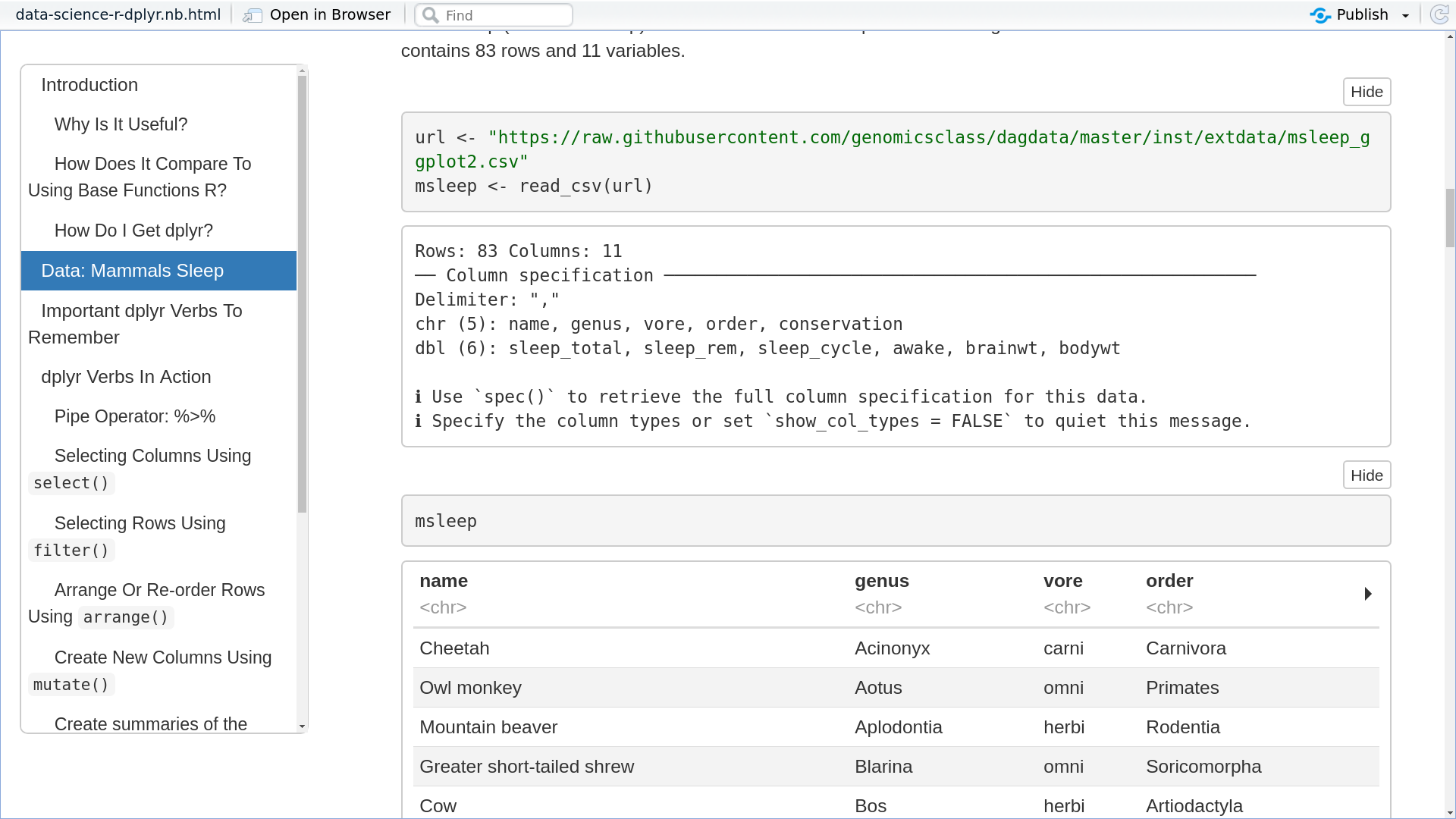
New Feature: Automatic RMarkdown
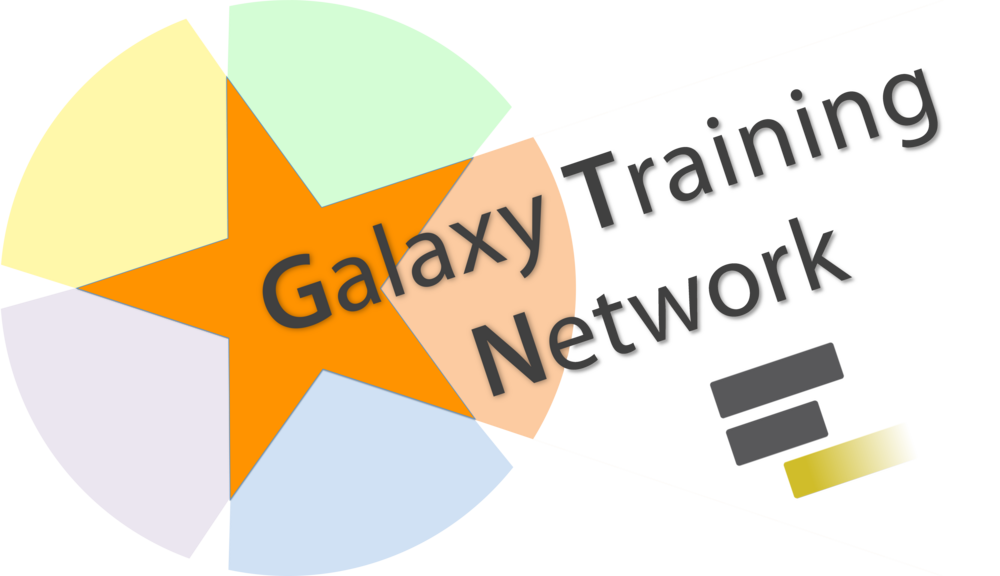
What are the most used tools in the GTN?

New Feature: Trainer Directory! (Add yourself today!)
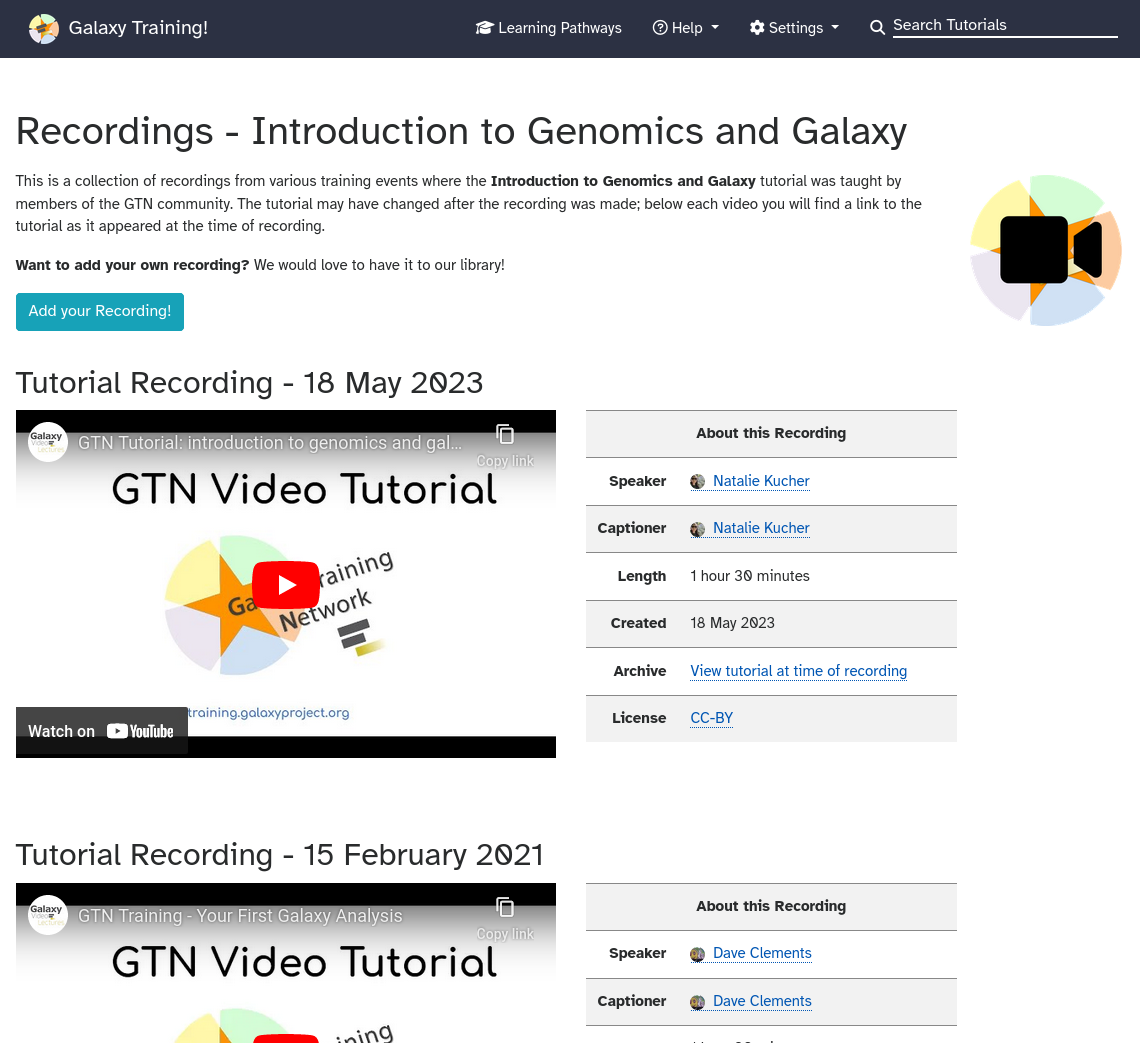
GTN Video Library 2.0: 107 hours of learning across 154 videos
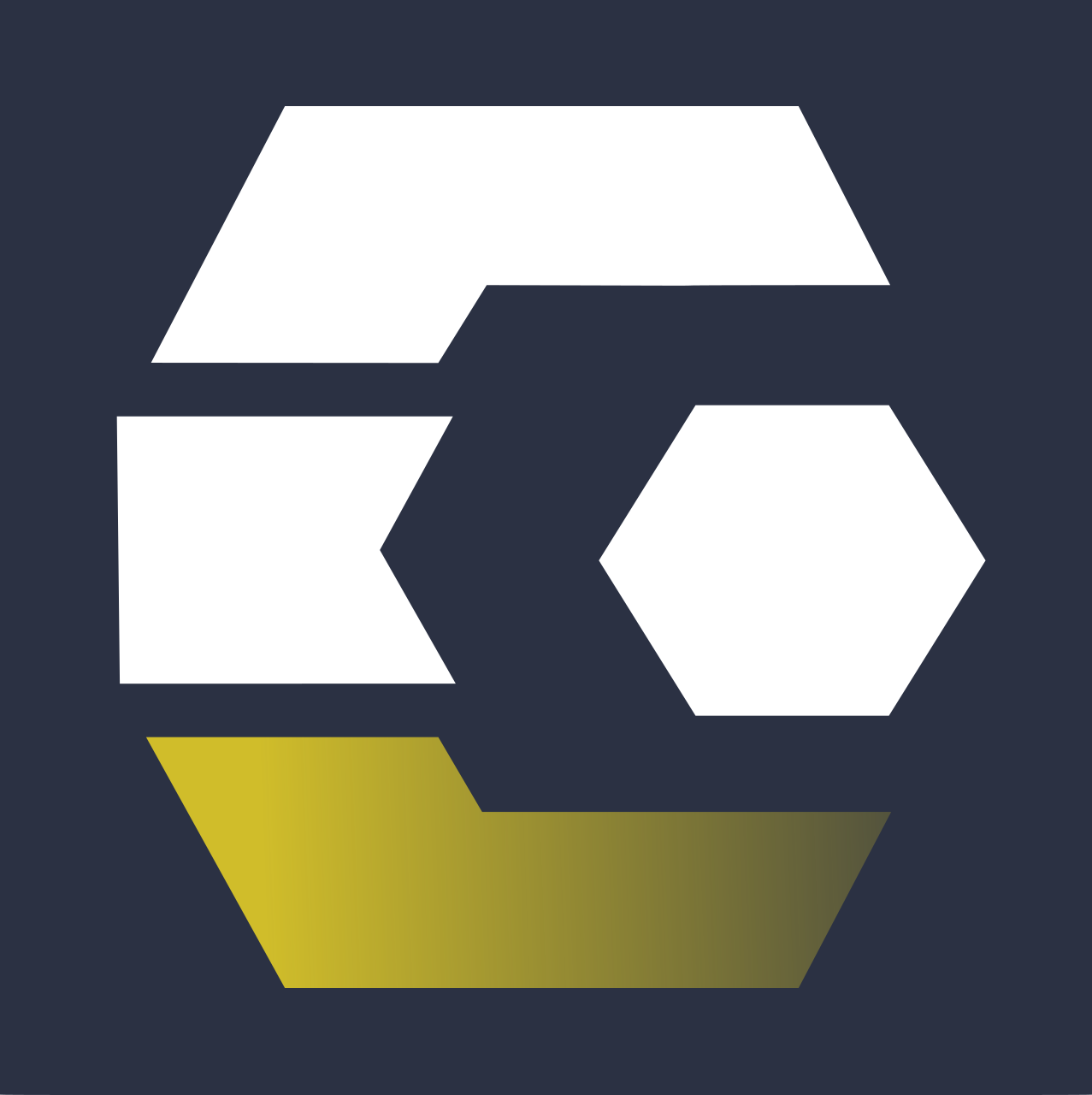
External Links
Website: https://www.erasmusplus.nlFunding information
Funding body: Erasmus+ Programme
Grant ID:
2020-1-NL01-KA203-064717
Favourite Topics
Favourite Formats
